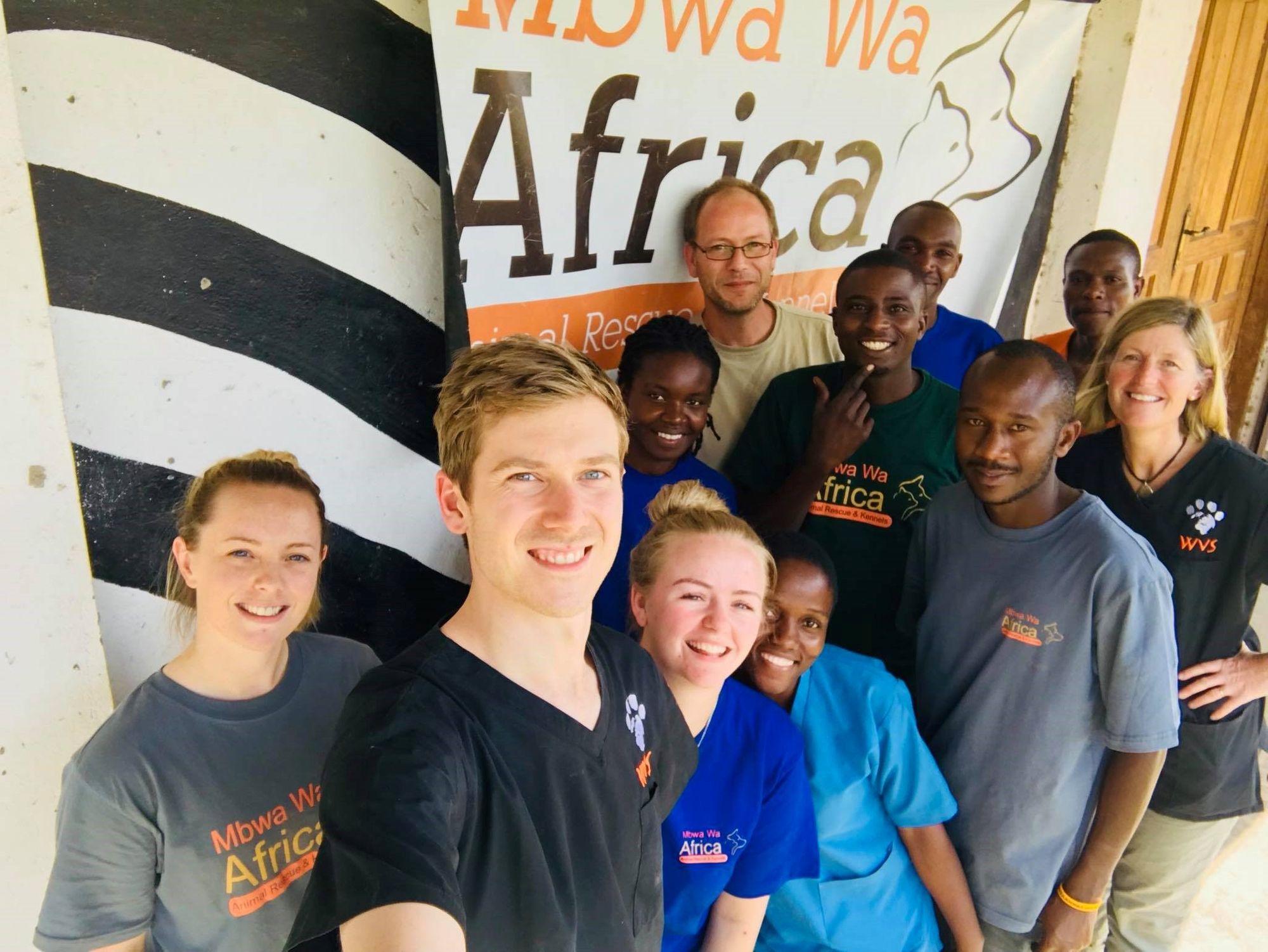Ben Safrany is a vet from the UK, who embarked on our recent project in Tanzania, helping run a neutering and treatment clinic and assisting our sister charity Mission Rabies with their vaccination drive in the Meru district. Find out what inspired him to join the team, and how one special dog is now back to full health thanks to the WVS volunteers…

I’d wanted to volunteer with WVS since I was a student but somehow had always found a reason not to, whether that was difficulty getting the time off, having money for flights or (although I wouldn’t admit it) apprehension about traveling alone and working overseas for the first time. In December 2017, when my employer-to-be asked if I minded delaying my start by a month I found myself with January free and no excuses. I contacted WVS, and they were looking for a volunteer vet in Tanzania.
A month later I landed in Kilimanjaro airport, ready to embark on a two week project with WVS. I was working alongside another vet and two nurses from the UK, with a large team of local volunteers, in partnership with local charity Mbwa Wa Africa (Dogs of Africa) as part of a neutering drive. WVS sister charity Mission Rabies were also in the area so at times we worked alongside a team of 12 vets from all over the world who worked tirelessly to administer rabies vaccinations to as many local dogs as possible. We worked in both a makeshift clinic next to Arusha National Park (with views of Mount Meru and Kilimanjaro!) and local primary schools to help treat dogs brought in by their owners, as well as those found by the Mission Rabies field teams.

We worked long, tiring days, neutering over 200 dogs in 10 days but it never felt like hard work. I was lucky to work with an incredible team, whose endless positivity and determination made the days fly by whilst forging lasting friendships. It was important to us that this wasn’t just a neutering campaign, and we treated a variety of cases in need of the veterinary care which isn’t always available in this region, including a dog with a badly infected open fracture of his forelimb, numerous wounds and an enucleation.

One of these cases was Simba (swahili for lion). Simba was brought in for neutering, but it was immediately apparent that both his eyelids were so badly swollen, he was nearly blind. His owners had sought help and he had been diagnosed with abscesses and treated with traditional medicine, still widely practiced in the region, but he showed no sign of improvement. We noticed he was also having difficulty urinating. We sedated him for a thorough examination and found he had a cauliflower-like growth on his genitals. His signs were compatible with a transmissible venereal tumour (TVT). TVTs usually affect just the genitals and are spread by mating, but in some cases can spread to other areas of the body. Simba was treated with vincristine. After just one dose he showed an incredible response to treatment, and shortly after the second dose he appeared normal. He will continue to receive weekly vincristine until he has had four doses, which will cure the majority of cases of TVTs. He was also neutered to prevent him being affected by this condition in the future.

We had a two day break in the middle of the project, where we arranged a short safari with some of the Mission Rabies volunteers which was a wonderful experience.

I loved every single moment of this experience and would wholeheartedly recommend it to anyone considering it. The most surprising part of the trip was how high clinical standards were. The local charity, Mbwa Wa Africa are incredible and work tirelessly to promote animal welfare in Tanzania, and the fact that WVS can support them with volunteers and run a project with them is amazing. I’m very happy I was able to be a part of it!